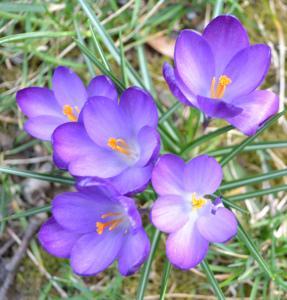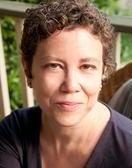
This year, I am fielding calls from reporters wanting to know how we handle the dilemma of Passover starting on Good Friday. I know that, especially for young couples just starting their interfaith journey, this convergence of important holidays may create stress. Say, for instance, your in-laws are expecting you for a raucous Passover seder featuring four glasses of wine and glazed brisket: this could be an alienating experience if you are also commemorating the crucifixion of Jesus and avoiding meat on the solemn Friday of Holy Week.
As interfaith families become the norm in our culture, rather than the exception, all of us must learn to empathize, to see our own practices through the eyes of the “other.” And as each interfaith couple learns to listen deeply and to support one another, I can imagine that serving salmon, rather than brisket, might be a reasonable accommodation in some families this year. Note that I am very pleased to report that chicken broth is apparently acceptable for those fasting from meat, so matzoh ball soup is “kosher” for interfaith families even on Good Friday!
Of course, it’s important for this kind of welcoming and respect to work both ways. So when our interfaith families community has an Easter gathering on Sunday, we follow it with the traditional pancake breakfast, but also fry up matzoh brie (matzah in scrambled egg), on separate grills, for those keeping kosher for Passover (pancakes have leavening, so they are not allowed during Passover).
I have to admit that rather than adapting our seder menu, our family is doing what an awful lot of American families are doing these days with all sorts of holidays: moving the date of our celebration. Somehow, this does not seem sacrilegious, since many of us attend multiple seders each year anyway, often spread out over weeks. Our community interfaith seder was last week, before everyone started leaving town for the school spring break to have Easter and Passover with family. Other themed seders such as women’s seders, or social justice seders, are often held well ahead of Passover week for the same reason. And families and friends may schedule multiple seders throughout Passover week, in order to celebrate with more than one group.
My interfaith clan won’t have our seder this year until later in the week, because being together is more important than the precise day we celebrate, and because we want to respect the climax of the Christian liturgical year. Moving our seder will allow for a proper and separate day of celebrating Easter, since our extended interfaith crew includes both practicing Catholics (who will go to an Easter service) and small children (who will want to eat chocolate and dye eggs). Part of respecting the differences between our two familial religions involves giving each holiday proper space to breathe, and avoiding blending them together. But I suspect that inevitably this year, some of us will spend Easter making matzoh balls.
After years of blogging around the cycle of Jewish and Christian holidays, I thought I would provide a round-up of links to my past posts on Passover and Easter in interfaith families. For culinary musings, you can read about my Grandma’s southern-style charoset with bananas, oranges and pecans, about the “Easter” recipes in her 19th-century German Jewish cookbook, and about what to do with leftover matzoh, jelly bean, and Peeps. And on Joan Nathan’s blog, alongside her terrific flourless chocolate cake recipe, you can read my tips for making the Passover seder more accessible for both Jewish and interfaith guests.
To address the “Spring Dilemma” head on–-the theological harmonics and feedback produced by the proximity of Easter and Passover, read about how one father talked to his young interfaith daughter about the story of Jesus, about my experience of Easter as a mystery and a metaphor, and about being Jewish at a sunrise Easter service.
And for more about how my motley interfaith clan celebrates, you can read about it in this post, and in my infamous “Interfaith Easter, Oy!” essay from Huffington Post (with 240 passionate comments).
However you celebrate, wherever you are, I hope you have time to slow down this holiday weekend, to take in the rebirth of spring, to appreciate the old people and the babies and the tender teenagers gathered round, as we partake in these ancient rituals together.
(NOTE: a version of this post ran in 2010, when Passover and Good Friday also converged).
Susan Katz Miller’s book, Being Both: Embracing Two Religions in One Interfaith Family is available now hardcover, paperback and eBook from Beacon Press.

